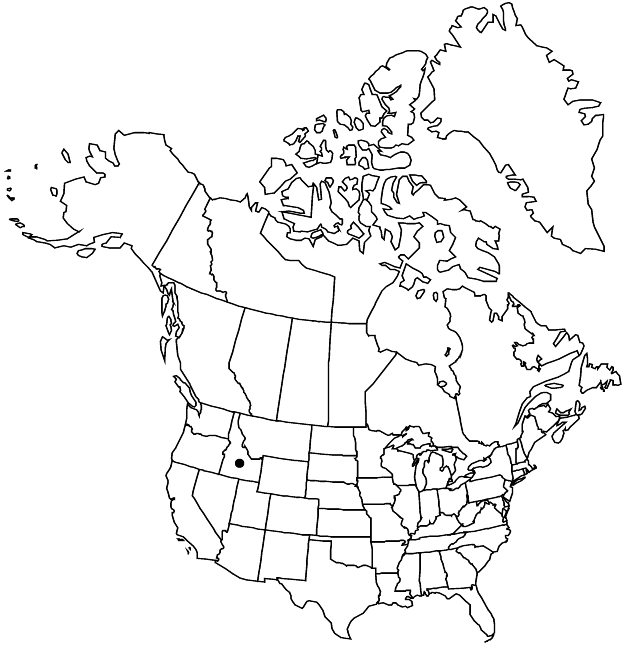Pseudostellaria oxyphylla
Sida 21: 176. 2004.
Rhizomes without tuberous thickenings or fleshy storage roots. Stems 4-angled, 15–30 cm, pubescent in thin internodal line. Leaf blades lanceolate to lance-elliptic, 6–12 × 0.8–1.2 cm, margins often revolute, smooth or granular, sometimes papillate, sparsely ciliate proximately, glabrous or margins and midrib (adaxial) ciliolate. Inflorescences paired flowers (single by abortion) in distal 3–7 axils or in terminal cymes. Pedicels recurved to reflexed from base in fruit, with thin internodal line of pubescence. Flowers: sepals narrowly ovate to lanceolate, 6.5–7 × 1.5–2.5 mm, essentially glabrous or margins ciliolate in proximal 1/2; petals 8–9 × 1.5–2 mm, apex notch 0.8–1 mm deep, lobes narrowly rounded; anthers 5, yellow; styles 3.5–4 mm; stigmas adaxial, linear, 2.5–3 mm. Capsules 4–4.5 mm. Seeds 1–2, reddish brown, circular, plump, 2.5–2.6 mm; tubercles broadly conic to elongate, rounded, each with 8–12+ stipitate glands smaller than ca. 0.015 mm (50×).
Phenology: Flowering late spring, summer.
Habitat: Banks along perennial streams, often adjacent to coniferous forests
Elevation: 800-900(-1800?) m
Distribution

Idaho.
Discussion
Of conservation concern.
Pseudostellaria oxyphylla is known from Kootenai and Shoshone counties in northern Idaho.
Selected References
None.